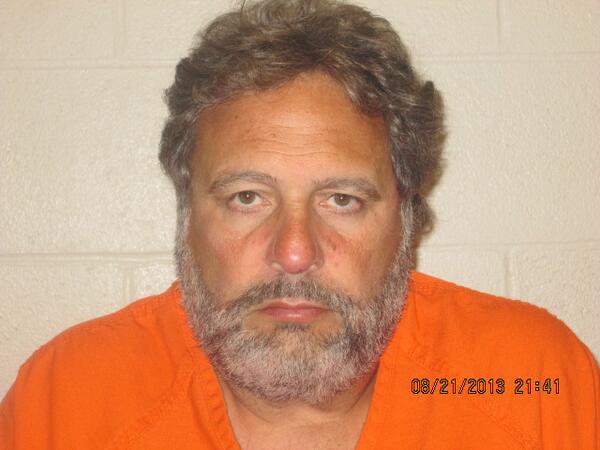 Two weeks after the Justice Department released its scathing report on the Cleveland police, the city’s debate about excessive force is stuck in low gear.
Two weeks after the Justice Department released its scathing report on the Cleveland police, the city’s debate about excessive force is stuck in low gear.
Mayor Frank Jackson says he disagrees with parts of the Justice report, but he won’t say which. Embattled safety director Michael McGrath calls the report unfair. City council has embarked on a “listening tour,” but hasn’t promised concrete action.
Here are 10 questions that city council, the press and the public ought to demand of the Jackson Administration. An assertive city council should bring up these questions in hearings. If it doesn’t act, it may be up to the public, the press and a few maverick councilpeople to investigate and get answers.
1. The Justice Department report says: “In most of the instances of excessive force we identified, supervisors all the way up the chain of command approved the use of force as appropriate.” Does that mean that McGrath, who was police chief during the federal investigation, signed off on those uses of force as justified?
2. The report gives 16 detailed examples of excessive force. It gives pseudonyms to 15 of the injured citizens, but one man, Edward Henderson, is named, and Cleveland.com has identified three others: Germaine Ware, Gregory Love and Randell Scott, Jr.
In how many of those 16 cases were any officers disciplined? If no one was disciplined, did McGrath, as chief, personally sign off on that decision? Does McGrath defend those uses of force? If so, how?
3. Mayor Jackson told reporters Dec. 11, “If you look at the use of force over time, you will see that it has decreased. You will see that there has been accountability.”
But U.S. Rep. Marcia Fudge wrote in her Aug. 25 letter to U.S. Attorney General Eric Holder that “nothing” happened after Justice’s first investigation of the Cleveland police in 2004. “The recommendations were ignored and the abuse of many citizens continued,” Fudge wrote. “A lack of meaningful accountability remained within the Cleveland police department.”
How does Mayor Jackson respond to Fudge’s letter?
Jackson added, “I have confidence” in his past and present chiefs and safety directors “in terms of their attempt to correct behavior that needs to be corrected.”
Does Rep. Fudge agree or disagree with Mayor Jackson?
4. Council president Kevin Kelley, asked at a press conference about protestors’ calls for McGrath to resign, responded, “What would that solve? Where would that get us?”
What is Kelley’s plan to ensure that existing police and safety leaders hold officers to a higher standard on use of force cases than they have in the past?
5. In the New Year’s Eve 2010 death of Rodney Brown after a traffic stop, what does the safety leadership say about why no officers were disciplined?
Why was the officer who said, “So? I don’t give a F—” when Brown said, “I can’t breathe” not disciplined?
6. The next day, New Year’s Day 2011, several police kicked Edward Henderson while he was on the ground by a highway. Henderson went to the hospital with a broken bone near his eye. A police helicopter’s infrared camera caught the incident, but the video does not reveal the officers’ identities. Federal prosecutors launched a grand jury probe that has lasted years but produced no indictments.
The Justice Department says four officers spent time on administrative leave without pay, but were not formally disciplined. None of the 10 or so officers on the scene filled out a use of force report. “To date, no officers have identified any of the officers who used force in this incident, and no officers have been disciplined for failing to report this incident,” the report says.
Does that mean the federal grand jury probe has reached a standstill? Did the officers also stay silent when Cleveland’s internal affairs investigators interviewed them about the incident? If the criminal probe is over, will the officers now be disciplined for covering up others’ excessive force?
7. The Justice Department found that the police Use Of Deadly Force Investigation team and its Internal Affairs Unit both conduct inadequate investigations. Use-of-force investigators even admitted they slanted their reports to favor officers.
What will Mayor Jackson, Safety Director McGrath, and chief Calvin Williams do to reform the two units? Is it possible to effectively reform them if their leadership and personnel stay the same?
8. The city charter promises that a civilian Police Review Board will review citizen complaints about police after an investigation by the Office of Professional Standards. But the 2004 and 2014 Justice reports both found that the Office of Professional Standards is understaffed, moves slowly and does not investigate all the complaints it should. The new report also says the Police Review Board’s reviews are inadequate and lack transparency, and that neither the board or the OPS are reviewing deadly force incidents, as the charter gives them the power to do.
What will the mayor and council do to make the Police Review Board and Office of Professional Standards live up to the charter’s promise? Will it take a new charter amendment?
9. In Tamir Rice’s death, was the dispatcher’s failure to radio that Rice was “a juvenile” and his gun was “probably fake” an isolated mistake, or part of a pattern? How often do dispatchers relay alarming information to patrol officers but leave out important details that might lead them to de-escalate a situation?
10. Will the Cleveland police receive more training on use of force policies? Deescalating confrontations? Recognizing crossfire situations? Scenario-based training, including simulated pursuits? Controlling subjects appropriately? Dealing with the mentally ill?















